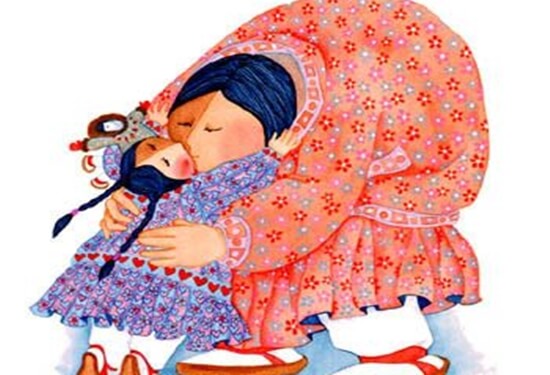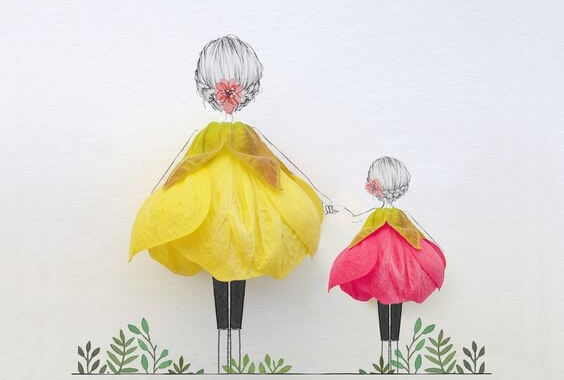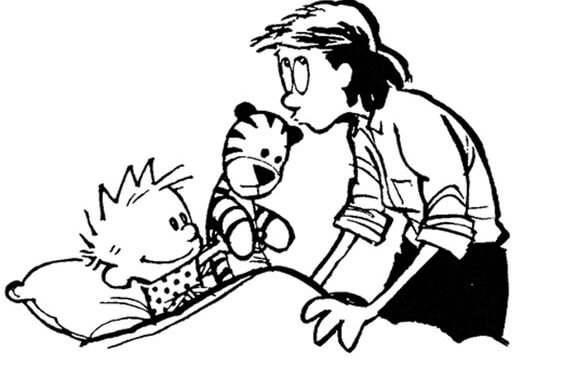What Children Teach Their Parents

Children teach their parents the essentials of life: The importance of loving without measure, being generous and seeing the world through rose-tinted glasses.
That’s why I’ve come to realize that I’m the one that learns the most from my child every day.
Parents sometimes feel like they’re their children’s teachers.
While mom and dad definitely teach their children many practical things such as eating, going to the bathroom and walking…. c hildren also come to teach a lot to the adults that surround them.
Parents who strive to respect their children are able to grow their consciousness by leaps and bounds.
Respecting your child involves understanding their autonomy, learning processes, criteria and needs.
In order to achieve this profound respect for your children, you have to make an effort to be the best you can be. This will also be useful when it comes to educating your children.
This whole process not only leads to you respecting your children, but it also helps you to respect people in general.
Respect is an unshakable principle in your dealings with others. This is how you will eventually teach your child the value of respect.

Raising my child has been revolutionary to my life. Every day I strive to be a better version of myself. I have to do this if I want to set a good example.
Although it’s true that I learn beautiful things from my child every day which fill me with compassion and tenderness, it’s also true that my child is constantly learning from me as well.
This motivates me to change and to be a better person. And that is another lesson that I learn every day thanks to my child’s presence.
Being a parent means teaching and learning at the same time
Being a parent nowadays takes a lot of intellectual effort. It’s through our knowledge that we can put into practice a conscious pedagogy that motivates our children to learn and to solve problems on their own.
It’s also through our knowledge that we can teach them to act freely and respectfully.
This can be achieved by applying an educational scheme that doesn’t necessarily include prizes or punishment but rather, one that motivates them to form their own criteria.
To apply this kind of education I have to first work on my own personality in order to avoid falling into easy solutions.
This can be done only by implementing a new pedagogy – one that respects the concepts I was raised with; but at the same time, one that is increasingly humanized.
Putting concepts of humanity into practice is how I learn every day. I do this when I respect my child’s essence, when I encourage their autonomy, when I encourage them to participate in decisions that will affect them, and when I sow values such as cooperation instead of competitiveness.
I learn from my child every day because he has taught me the value of family, love, respect, communication and spending time with loved ones.
Being a mother has given me the clarity to be grateful for life. It is simply fundamental for us to take care of one another.
I learn with love

Having a child makes you learn that one of the best ways to live your life, is by making every day full of little special moments.
Children tend to be very detail-oriented and spontaneous. We must learn from them.
Alongside my child I’ve learned that the most important thing in life is to be happy.
Happiness can be achieved through simple things like learning to share within a family. It can also be found while helping others and doing my work to the best of my abilities.
All of these things help make one feel good and it’s that feeling of fullness that makes us truly happy every day.
Being able to be at my child’s side and seeing him grow has transformed me as a person. I feel like I am full of love. I see life in a different way and I have all the strength in the world.
My child is the one who made this change occur. This makes them our teachers, the ones we learn from every day.
All cited sources were thoroughly reviewed by our team to ensure their quality, reliability, currency, and validity. The bibliography of this article was considered reliable and of academic or scientific accuracy.
- Bowlby, J. (1986). Vínculos afectivos: formación, desarrollo y pérdida. Madrid: Morata.
- Bowlby, J. (1995). Teoría del apego. Lebovici, Weil-HalpernF.
- Garrido-Rojas, L. (2006). Apego, emoción y regulación emocional. Implicaciones para la salud. Revista latinoamericana de psicología, 38(3), 493-507. https://www.redalyc.org/pdf/805/80538304.pdf
- Marrone, M., Diamond, N., Juri, L., & Bleichmar, H. (2001). La teoría del apego: un enfoque actual. Madrid: Psimática.
- Moneta, M. (2003). El Apego. Aspectos clínicos y psicobiológicos de la díada madre-hijo. Santiago: Cuatro Vientos.
